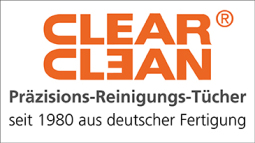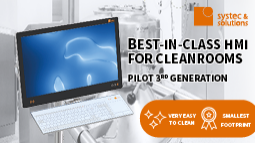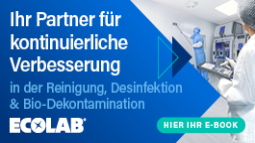- Trade fair
Cleanroom technology in action against COVID-19
In the time of coronavirus, one thing is certain: until an effective vaccine is found, distancing, hygiene, traceability and extensive testing capacities are going to be top priority. And when it comes to hygiene, there is already a group of experts who have been focusing on combating harmful micro-organisms for many years: cleanroom technicians.
As an interdisciplinary technology, cleanroom technology serves every area of application where contamination control is required – including the pharmaceuticals and food industries, medical technology, hospitals, microtechnology and the automotive industry. Following the outbreak of the coronavirus pandemic, many cleanroom technology manufacturers took their responsibility seriously and adapted their products to help fight the coronavirus pandemic.
Josef Ortner from Ortner Reinraumtechnik, who is also a member of the Cleanzone strategy commission, summarised the importance of the cleanroom industry in the current situation: “Our industry in particular offers a foundation for action – it serves as a link between the virologists, the decision-makers and the economy.”
Gernod Dittel, Chairman of the Board of the German Cleanroom Institute (DRRI), added: “Germany boasts the world’s leading cleanroom technology industry, meaning it is ideally situated for developing pioneering technologies under cleanroom conditions – not only to protect products, but also to protect people.”
Protective air from above
Be it at supermarket checkouts, pharmacies or hotel reception desks, accompanying acrylic glass screens with laminar flow units offers additional security to people in systemically relevant professions with extensive customer contact. These units, which are mounted above the person being protected, generate a low-turbulence displacement flow (laminar flow) that forms a protective ‘shell’ around the employee, because the freely flowing air has the property that it builds up around surfaces. The air is then drawn back in and filtered in the laminar flow unit.
Airlocks for personnel or materials prevent micro-organisms from travelling from A to B. In hospitals, for example, it must be ensured that no microbes travel from the isolation ward into normal hospital operations, or from there into the isolation ward. Here too, cleanroom technology offers helpful products: depending on the particular requirements, air showers using airflows to remove adhering particles or wet showers for persons using disinfectant can be employed.
Reutilisation: local and sustainable
In times where resources are scarce, the ability to reuse contaminated materials, especially disposables, is particularly important. An Austrian working group involving Ortner Reinraumtechnik and Graz University of Technology has developed a concept for decontaminating protective clothing and other protective equipment. Among the methods that the group studied and found to be effective were fumigation with hydrogen peroxide and irradiation with UVC. An ingenious logistics system ensures local supply centred on a container system for disinfection with an upstream intake and downstream output zone.
Mobile hospitals and testing laboratories
Be it for crisis-hit areas, infection control or in the form of containers at airports, the demand for mobile laboratories and cleanrooms continues to grow. Already in 2016, the ‘Shellbe’ mobile hospital created by the Adriatic Institute of Technology won the Cleanroom Award for innovation. Dr. Gernod Dittel, who was involved in designing this mobile cleanroom, explains its importance for combating COVID-19: “China’s ability to build an entire hospital for coronavirus patients within eight days impressed the entire world. While this may be less well known, German technicians can accomplish the same feat. Germany possess tremendous expertise in modular construction that can be deployed worldwide.” Technological advances such as ‘Shellbe’ and ‘Life-Isle’ are mobile, sterile, dust-free cleanrooms that can be set up faster than any hospital. These award-winning systems are suitable or use as hospital wards, operating rooms, outpatient clinics, pharmacies and biotech labs. Particularly flexible cleanrooms for medical purposes can also be quickly erected on a fabric basis, such as the Cape tent by Fraunhofer IPA or shpairlab by the company of the same name from Aachen. Both projects were nominated for the Cleanroom Award: “Cape” in 2018 and “spairlab” in 2017.
![]()
Cleanzone
Messe Frankfurt Exhibition GmbH
Ludwig-Erhard-Anlage 1
60327 Frankfurt am Main
Germany
Phone: +49 69 75756290
Fax: +49 69 757596290
email: anja.diete@messefrankfurt.com
Internet: https://cleanzone.messefrankfurt.com










